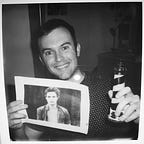‘Ratcatcher’ and the Shock of Youth
To say that the film Ratcatcher (1999) differs from the rest of Scottish director Lynne Ramsay’s brief filmography would be apt at first glance. This distinct presence of violence and agony in her films We Need to Talk About Kevin and You Were Never Really Here plague the screen in Ramsay’s films. Where Ratcatcher differs in that matter is its much more subdued approach to trauma. The pain felt by the characters in Ramsay’s debut film highlights the director’s goal of showing the pain and guilt that surround death. Ratcatcher changes things up compared to her later filmography by having the view of tragic events shown from the point-of-view of a child.
Death or the events surrounding tragic incidents are key themes in the work of Ramsay. Tragedy strikes early in Ratcatcher following the death of the young Ryan Quinn, accidentally killed by his friend James while playing in a canal. For the rest of the film, we follow James as he tries to deal with his guilt over the event, his responsibility for which he keeps secret from his family and friends. Trauma is unveiled as a slow sort of realization to James, who as a child has never experienced anything like this before.The realization that his friend is gone forever from this Earth is shown in his newfound difficulties in his everyday life. He shows outward hatred towards his parents and sisters, he falls in with a bad crowd, and he spends his days running away to a new and distant housing estate, daydreaming about what life he could lead if he were not stuck in the poverty and disregard of 1970s Glasgow.
Lynne Ramsay achieves this sense of disillusionment felt by the Glasgow youth through her absolutely uncompromising vision and style. Visually, Lynne utilizes recurring locations to compartmentalize James’s trauma. James continues to return to the sight of Ryan’s death, purposefully or not, the canal lingers in the film. Whether or not he realizes it, James will carry the pain of Ryan’s passing for the rest of his life. Through the use of literal physical space in Ratcatcher, Ramsay shows how James’s anguish is material and inescapable. James’s attempts to escape through his escapades at the distant housing estate or while visiting his newfound friend Maragaret Anne, he will still be trapped. He will always return to the canal. Ramsay does whatever she can to physically cut James off from the other characters in the film as well. When he is with his family, he is framed out of the wide shots of the space. When he is hanging out with the other neighborhood boys, he is shoved in another room. His brief scenes of escape have him by himself. Through this navigation of the locations in the film, Ramsay crafts a portrait of a child who has never dealt with this pain before, and in not knowing how to deal with the lingering of the events on his mind, he coped by cutting himself off from those he knows. James never reveals the true nature of what happened with Ryan at the canal. The secret is James’s to carry forever.
Of course, the weight of the ramifications in Ratcatcher would be moot if they could not be portrayed authentically. Luckily, this is where Lynne shows off her ability as a titan of a director. Lynne has a unique ability, especially early in her career, to mix non actors with career professionals to boost the performances of the real people who have lived in the settings of her films. In the case of Ratcatcher, Lynne mixes non-actors in the children and a number of the adult characters, and has them share the screen with talents like Tommy Flanagan to really sell the overall environment. If it were just nonactors, they would have no one with experience to bounce off of, and with all career actors, they would not be able to sell the life experience of the true natives of Glasgow. It is the mix of the two that has children characters like James, Kenny, and Margaret Anne feel so real. Lynne also has a wonderful talent of wrenching emotion out of her characters through subtlety. Ratcatcher is a very quiet film in that regard, there is less of a focus on dialogue and more attention to action. Instead of having a character explain their trauma and emotional state in a bout of expository dialogue, an extreme closeup of a face tells much more. Ramsay is a master at crafting silence. In a way James cannot tell anyone about his pain because he is too hurt to speak.
Ratcatcher is certainly a difficult film to watch, but if you want to experience everything the fantastic Lynne Ramsay has to offer, her debut is an excellent place to start. The film is a bit difficult to track down nowadays, as it is an out of print art film out of Scotland made by a then-unknown director, but you can find it on the Criterion Collection DVD for relatively cheap on Amazon, which also has all of Ramsay’s early short films.
Sources:
https://filmschoolrejects.com/lynne-ramsay-ratcatcher/
https://www.theguardian.com/film/2002/oct/28/features
Link to the film for purchase:
https://www.amazon.com/Ratcatcher-Criterion-Collection-Tommy-Flanagan/dp/B000069CF9
